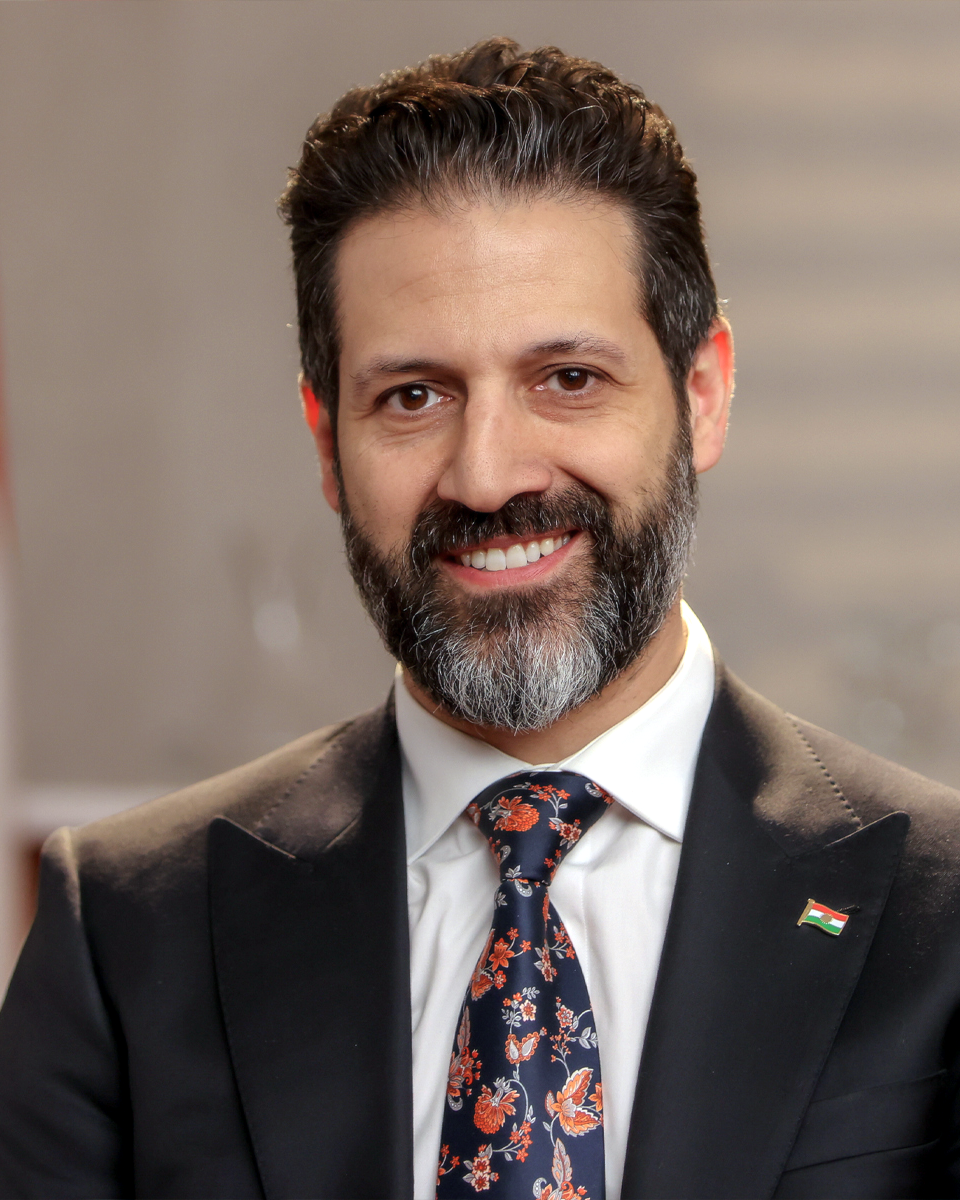He was first sworn in as Deputy Prime Minister of the Eighth KRG Cabinet in June 2014, where he took office during a challenging time.
Receiving no fiscal transfers from the Government of Iraq (GoI), coupled with rapidly declining oil prices, the Kurdistan region was in the midst of a severe financial crisis.
Moreover, the Islamic State was rampaging its way throughout Iraq, claiming territory and establishing itself as one of history’s most brutal terrorist organizations, resulting in a major humanitarian crisis that forced 1.8 million people to flee war and violence and seek refuge in the Kurdistan region. During this period, the KRG successfully oversaw a package of reforms.
A significant part of the KRG’s economic reform plan included improving oversight of government expenditures. To that end, Talabani successfully oversaw the design and implementation of his government’s Biometric Registration Program. This system, aimed at eliminating ghost employees and right-sizing the government, helped to remove 50,000 fake jobs, which saved the KRG millions of dollars monthly.
In six months, 1.2 million people were registered in the Biometric Registration Rystem. Talabani also launched the KRG’s Services Portal, aimed at streamlining government services and citizens' interactions with the government.
During the KRG’s Seventh Cabinet, Talabani established and headed up the Department of Coordination and Follow-up to facilitate inter-ministerial coordination and ensure that decrees are effectively implemented. He directed that Agency on behalf of the Prime Minister for two years.
Before returning to the Kurdistan region's capital, Erbil, starting in 2000, Talabani served in the KRG’s representation office in the United States. He was appointed the KRG Representative to the U.S. after the Government unification in 2006, a position he held until his departure in 2012.
While Talabani served as the KRG’s top diplomat in the U.S., the representation office was recognized by many as Kurdistan’s de facto embassy in Washington, DC.
During Talabani’s posting, the KRG representation in the U.S. deepened Kurdistan’s relations with the executive and legislative branches of the U.S. government. Among other successes, Talabani launched the Kurdish-American Congressional Caucus. Fifty-two members of Congress formally supported this bipartisan caucus in 2011. The caucus, established in May 2008, now symbolizes continued amity and cooperation between the United States and, Kurdish Americans and the people of the Kurdistan Region of Iraq.
During his tenure as the KRG representative to the U.S., Mr. Talabani was also instrumental in forming the United States Kurdistan Business Council (USKBC) in November 2011. The USKBC is dedicated to facilitating trade and commerce for U.S. companies in the Kurdistan Region and strengthening ties between the private sector in the U.S. and the Kurdistan Region. The USKBC also works closely with the KRG to ensure that foreign investment provides needed value and benefit to the region and is made in such a way as to reinforce and strengthen the already enormous economic opportunities there.
Talabani also strengthened Kurdish grassroots activities and engaged the Kurdish-American community in shaping U.S. policy, which included mobilizing the Kurdish community in the U.S. and the Kurdish-American Congressional Caucus to pass legislation calling the State Department to open a U.S. Consulate in the Kurdistan Region.
After Operation Iraqi Freedom in the spring of 2003, Talabani was named senior foreign relations officer of the Patriotic Union of Kurdistan (PUK), which operated mainly out of Baghdad and Suleimani.
As the PUK’s top liaison to the Coalition Provisional Authority and U.S. forces in Iraq, he worked closely with the American-led Coalition Office of Reconstruction and Humanitarian Assistance.
Talabani was also a key negotiator in drafting the Transitional Administrative Law, the forerunner to the current Constitution of Iraq.
Following high school, Talabani took a keen interest in engineering. He obtained a Diploma in Motor Vehicle Engineering at Carshalton College. He later received a B.Sc. in Mechanical Engineering (majoring in Automotive Systems Engineering) at Kingston University in Greater London.
Deputy Prime Minister Talabani was born in 1977. He was raised in the United Kingdom by his maternal grandparents, Ibrahim Ahmed, a novelist, poet and founder of the modern intellectual Kurdish movement, and Galawejh Ahmed, also a novelist. His family has been involved in Kurdish politics for decades. His father, Jalal Talabani, was the President of the Republic of Iraq from 2006 until 2014.
Deputy Prime Minister Talabani lives in Erbil with his wife, Sherri, and their two children, Ari and Lara. He is fluent in Kurdish and English. Mr Talabani is a football fan and an enthusiastic supporter of Manchester United. Below, we have assembled a curated list of essential readings on innovation to enhance your understanding of the topic.
Qubad Talabani
The Deputy Prime Minister of the Kurdistan Region
Qubad Talabani is the Deputy Prime Minister of the Kurdistan Regional Government (KRG). He is a member of the political bureau of the Patriotic Union of Kurdistan (PUK) and supervises President Mam Jalal’s Secretariat.
Running on a platform of stability, jobs and improved services in the 2018 Kurdistan region parliamentary elections, Talabani won more votes than any other candidate in Iraq.
Running on a platform of stability, jobs and improved services in the 2018 Kurdistan region parliamentary elections, Talabani won more votes than any other candidate in Iraq.
